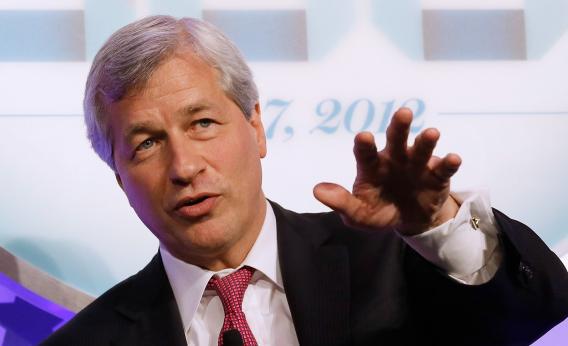In his prepared testimony ready to be delivered today to the Senate Banking Committee, JP Morgan CEO Jamie Dimon tries to walk a fine line when discussing alleged “hedging” trades may by the firm’s Chief Investment Office that ended up losing billions of dollars.
He doesn’t want to defend the trade, or the traders who made it, or the methods that led to the losses. He says that the bank was trying to address the “new Basel capital requirements” and made some moves that “morphed into something that rather than protect the firm, created new and potentially larger risks.” That’s mighty vague, and it’s vague for a reason.
The issue is that Dimon is still in the process of wrangling over the final version of the “Volcker Rule” concept. The idea of the Volcker Rule is to make it such that a firm like JP Morgan can’t try to earn huge trading profits. The rationale is that when you try to make huge trading profits you expose yourself to risks of giant losses, and yet since other aspects of JP Morgan’s operations are backed by taxpayers this doesn’t just exposure Morgan to risks it exposes the whole country. At the same time, regulators are supposed to allow banks to engage in hedging and market making. So a key question in writing and enforcing the rules is how broadly to read those exemptions. Having lost the legislative fight over the Volcker Rule, what banks now want to do is get those exemptions so broadly written as to allow them to keep humming along with risky trading operations. But key to the strategy of getting the exemption written sufficiently broadly so as to allow risky trading operations is that you can’t say that’s your objective.
And this is what puts Dimon in an awkward place. Normally if you’re a business and one of your operating units does something that you thought would earn a ton of money but instead lost a ton of money, what you say is “we tried to do this because we thought it would be very profitable, but actually we lost a ton of money. Bad move!”
But Dimon doesn’t want to concede that the intention behind the “London Whale’s” trades was to make large speculative profits, even though it’s clear that the Investment Office was, in fact, a big profit center until the trade blew up.
